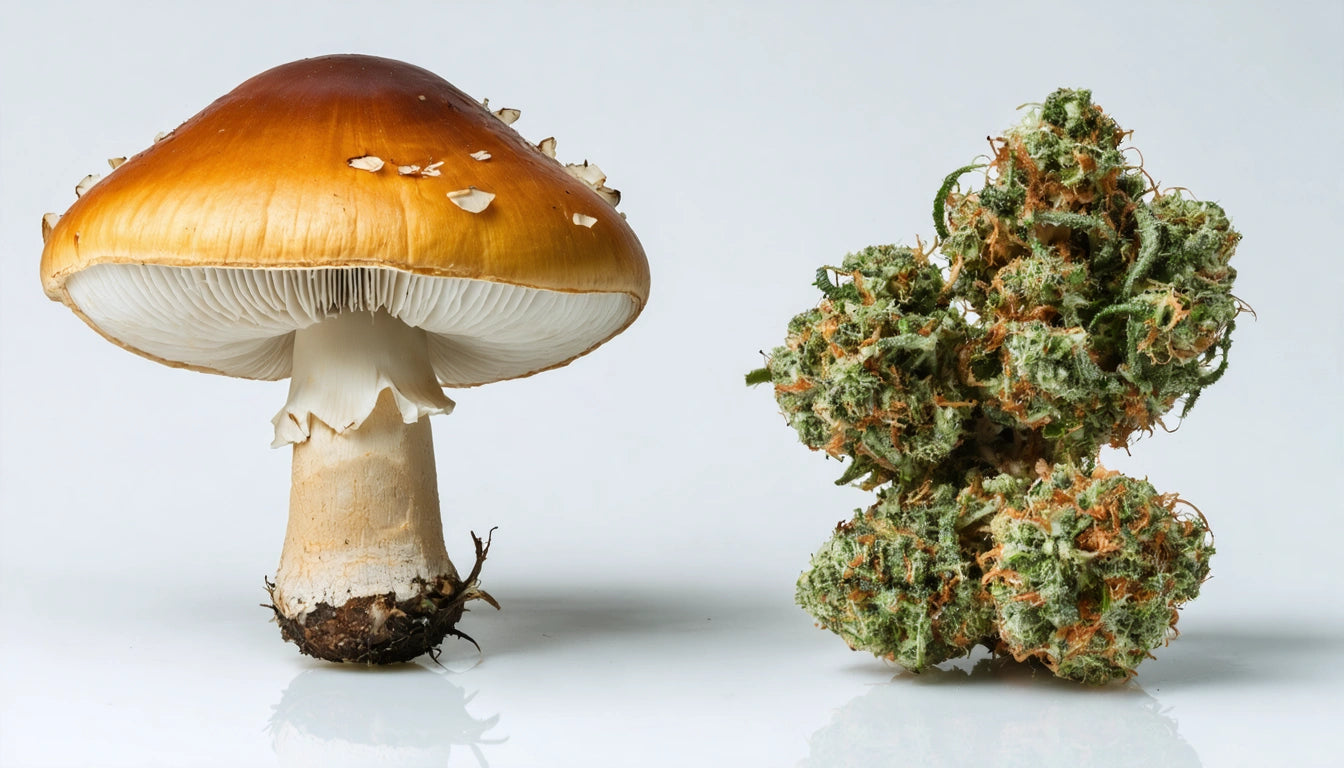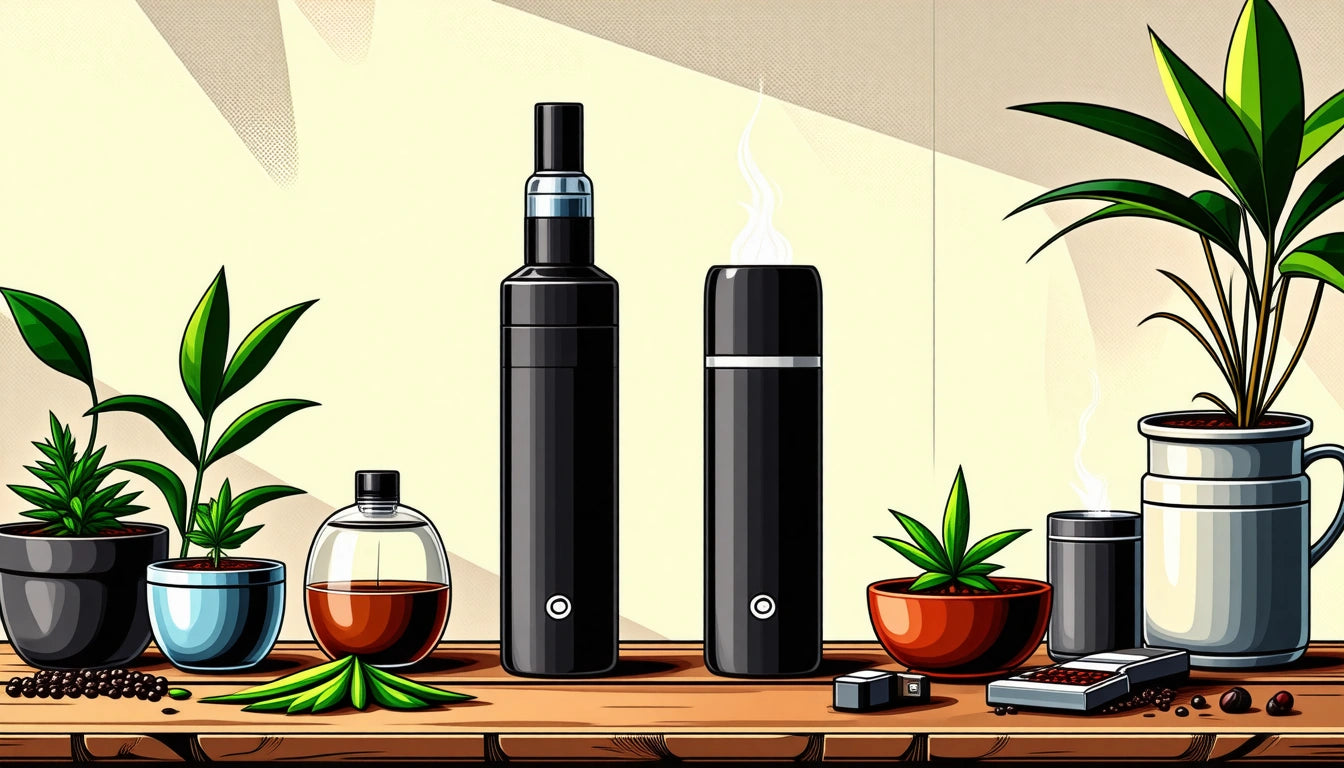Table of Contents
- Understanding the Basics: Shrooms vs Weed
- Effects Comparison: How Each Substance Affects the Mind and Body
- Duration and Onset: Timing Differences Between Mushrooms and Cannabis
- Safety Considerations and Risk Profiles
- Legal Status Around the World
- User Experiences and Common Reports
- Responsible Use Practices and Harm Reduction
Comparing Shrooms and Weed: Differences, Effects, and Experiences
The conversation around psychoactive substances has evolved significantly in recent years, with increased interest in both cannabis and psilocybin mushrooms. Many users and researchers alike are examining the question of shrooms vs weed, exploring their distinct properties, effects, and potential benefits or risks. This comprehensive guide breaks down the key differences between these two natural substances.
Understanding the Basics: Shrooms vs Weed
Cannabis (marijuana) and psilocybin mushrooms represent two entirely different classes of substances with distinct chemical compositions and mechanisms of action.
Cannabis Composition
Cannabis contains over 100 cannabinoids, with THC (tetrahydrocannabinol) and CBD (cannabidiol) being the most well-known. As detailed in this overview of cannabis composition, these compounds interact primarily with the body's endocannabinoid system, affecting mood, appetite, pain perception, and cognition.
Psilocybin Mushrooms
Often called "magic mushrooms" or simply "shrooms," these fungi contain psilocybin, which converts to psilocin in the body. Unlike cannabinoids, psilocin primarily affects serotonin receptors in the brain, particularly the 5-HT2A receptor, producing more profound alterations in perception, cognition, and consciousness.
Effects Comparison: How Each Substance Affects the Mind and Body
The question "are shrooms stronger than weed?" frequently appears in online discussions, including shrooms vs weed Reddit threads. The answer isn't straightforward, as the effects differ qualitatively rather than just in intensity.
Cannabis Effects
- Altered sensory perception (enhanced colors, sounds)
- Relaxation or euphoria
- Increased appetite
- Potential anxiety or paranoia (especially with high-THC varieties)
- Changes in time perception
- Bloodshot eyes and dry mouth
Understanding cannabis effects requires recognizing that experiences vary widely based on strain, consumption method, and individual factors.
Psilocybin Effects
- Visual and auditory hallucinations
- Profound alterations in thought patterns
- Mystical or spiritual experiences
- Emotional amplification
- Dissolution of ego boundaries
- Potential for challenging psychological experiences
The question "are shrooms like weed" can be definitively answered: while there may be some overlapping effects (altered perception, changes in mood), the psilocybin experience is typically more profound and transformative than cannabis effects.
Duration and Onset: Timing Differences Between Mushrooms and Cannabis
Another significant difference in the mushroom vs weed comparison involves how quickly effects begin and how long they last.
Cannabis Timeline
When smoked or vaped, cannabis effects:
- Begin within minutes
- Peak within 30 minutes to an hour
- Last approximately 2-4 hours
- May have residual effects for up to 24 hours
Edibles have a delayed onset (30-90 minutes) and longer duration (4-8 hours).
Psilocybin Timeline
Psilocybin mushrooms typically:
- Begin taking effect within 20-40 minutes
- Reach peak intensity at 2-3 hours
- Last 4-6 hours total
- May have aftereffects ("afterglow") for days
This extended duration is one reason proper safety precautions are essential, including secure storage solutions with child-resistant packaging to prevent accidental consumption, especially in households with children.
Safety Considerations and Risk Profiles
When examining whether are shrooms worse than weed in terms of safety, several factors must be considered.
Physical Safety
Cannabis has an extremely low risk of physical toxicity, with no documented fatal overdoses from the substance alone. Similarly, psilocybin mushrooms present minimal physical risk in terms of toxicity, though proper identification is crucial as some mushroom species are highly toxic.
Both substances can impair coordination and judgment, making activities like driving dangerous. However, psilocybin can cause more significant impairment of these functions during the acute experience.
Psychological Considerations
Cannabis may trigger anxiety or paranoia, particularly in high doses or in susceptible individuals. Psilocybin carries a more significant risk of challenging psychological experiences ("bad trips"), which can be intensely distressing but are typically temporary.
Neither substance is recommended for individuals with personal or family history of psychosis or certain psychiatric conditions.
Legal Status Around the World
The legal landscape for both substances continues to evolve globally.
Cannabis Legality
Cannabis has seen significant legalization and decriminalization movements:
- Legal for adult use in multiple U.S. states and countries like Canada and Uruguay
- Medically legal in numerous jurisdictions worldwide
- Decriminalized in many regions
Psilocybin Legality
Psilocybin remains more restricted:
- Decriminalized in some U.S. cities and the state of Oregon
- Legal in countries like Jamaica and the Netherlands (truffles)
- Approved for research and limited therapeutic use in some jurisdictions
The question of what are shrooms weed often arises from confusion about their legal status, but they remain distinct substances with different legal classifications in most places.
User Experiences and Common Reports
The debate around are shrooms better than weed often appears in user reports and forums like Reddit. These subjective experiences highlight the qualitative differences between the substances.
Cannabis User Reports
Typical experiences include:
- Enhanced sensory appreciation (music, food, etc.)
- Relaxation and stress relief
- Creative thinking
- Social enhancement or, conversely, social anxiety
Psilocybin User Reports
Common experiences include:
- Profound insights or personal revelations
- Mystical or transcendent states
- Emotional processing and release
- Visual phenomena (geometric patterns, enhanced colors)
Many users report that combining the two substances produces synergistic effects, though this practice requires careful consideration of dosage and setting.
Responsible Use Practices and Future Research Directions
Regardless of one's stance on shrooms vs weed, harm reduction principles apply to both substances.
Harm Reduction Practices
- Start with low doses, especially for inexperienced users
- Create a safe, comfortable environment
- Have a sober support person present, particularly with psilocybin
- Avoid use if you have underlying mental health conditions
- Store all substances securely away from children and pets
Emerging Research
Both cannabis and psilocybin are subjects of increasing scientific interest:
- Cannabis research focuses on pain management, epilepsy, and other medical applications
- Psilocybin studies show promising results for depression, PTSD, and addiction treatment
As cultural attitudes continue to evolve, we can expect more nuanced understanding of both substances' potential benefits and limitations.
Whether someone is considering cannabis, psilocybin, or simply curious about their differences, education and responsible approaches remain the foundation for minimizing risks and potentially maximizing benefits of these complex natural substances.










Leave a comment
All comments are moderated before being published.
This site is protected by hCaptcha and the hCaptcha Privacy Policy and Terms of Service apply.